Chapter 17
Reconstruction: 1865–1877
By Boundless
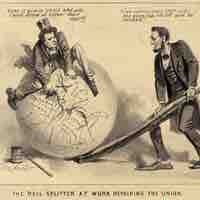
Lincoln and moderate Republicans favored a quick, straightforward reintegration into the Union for the Southern states.
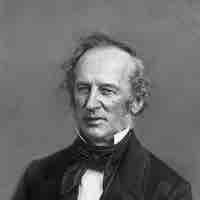
The North had a more highly developed industrial economy that led to military success during the Civil War and sustained economic growth after the war.

Many of the South's largest cities, and much of its human and material resources, were destroyed during the Civil War by the Union armies.
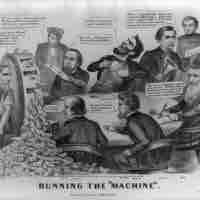
While Lincoln took a moderate approach to Reconstruction, Congress sought to impose harsh terms on the South.
While Andrew Johnson favored punishment for Confederates after the Civil War, his policies toward the South softened during his presidency.
The Fourteenth Amendment provided the foundation of equal rights for all U.S. citizens, including African Americans.

Southern states undermined efforts at equality with laws designed to disfranchise blacks, despite of a series of federal equal-rights laws.

After the Civil War, many African Americans and former slaves became Republicans and officeholders.
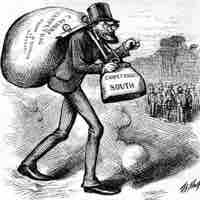
"Carpetbaggers" and "scalawags" are pejorative terms that were used by Southerners during the Reconstruction period.
The American South remained heavily rural for decades after the Civil War; sharecropping was widespread as a response to economic upheaval.
Radical Republicans in Congress, led by Stevens and Sumner, opened the way to suffrage and legal equality for freedmen.
President Ulysses S. Grant presided over a country that had survived the Civil War, but which was divided over how to deal with the aftermath.
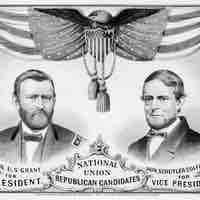
The election of 1868 was the first presidential election to take place after the Civil War, during Reconstruction.

Ulysses S. Grant's administration pursued a series of policies to strengthen public credit, reform the Treasury, and reduce the debt.
Ulysses S. Grant's administration was plagued by a series of scandals, many involving those close to Grant.
"White Terror" refers to white-supremacy groups formed in the South in reaction to recently freed African Americans after the Civil War.
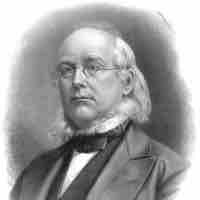
Grant remained popular after his first term and was renominated as the Republican Party's presidential candidate for the 1872 election.
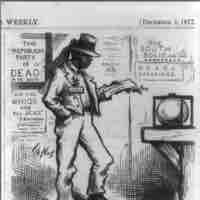
Following the Civil War, political-racial tensions built up in the South, leading to a period of radical military rule.
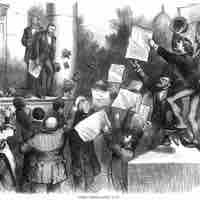
The global Panic of 1873 reached the United States after overspeculation in the railroad industry and other losses weakened the economy.
Many white Southerners were devastated economically, emotionally, and psychologically by the defeat of the Confederacy in 1865.
During Reconstruction, many Southern states passed laws that disenfranchised African Americans.
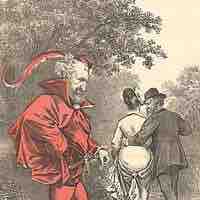
The Compromise of 1877 was a purported bargain in which the White House was awarded to the Republican Party after the election of 1876.